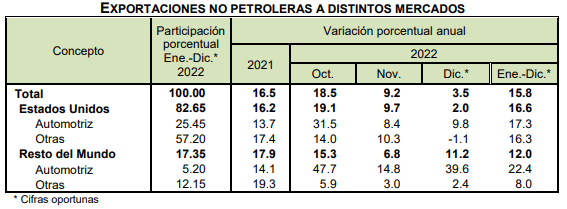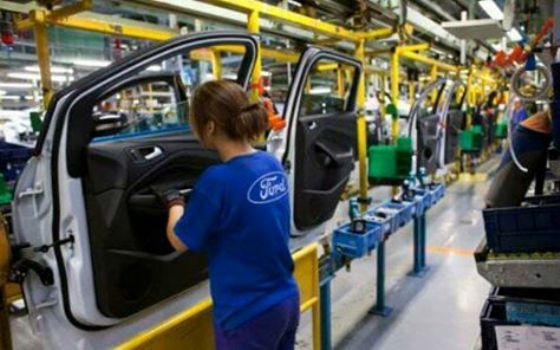Mexican automotive exports grew 17.5% in the first quarter of 2023 compared to the same period of 2022, Inegi reported.
Thus, these foreign sales amounted to 43,153.8 million dollars.
At the same time, Mexico‘s non-automotive manufacturing exports were 81,548.7 million dollars, an increase of 4.3%, year over year.

Adding both accounts, Mexico’s manufacturing exports from January through March of this year totaled $124,702.4 million dollars, up 8.5% over the first quarter of 2022.
Automotive Exports
While the globalized economy includes Mexico’s participation in the production of minerals as an important player, highlighting the production of metallic and non-metallic minerals, the mining sector is governed by the supply and demand of minerals which regulates prices worldwide.
The importance of being a producer of minerals makes Mexico a supplier of inputs for different industries: automotive, electrical, electronics, electric power generation and storage and electro mobility; leading to an increase in the demand for metals, in that sense the geological mining potential of the country attracts foreign investment to promote the development of projects that can meet this increased demand for minerals worldwide.
In all of 2022, Mexican automotive exports totaled 165,231.8 million dollars, advancing 18.2% over 2021.
Trade Agreements
Recently, Mexico has entered into trade agreements that seek to include state-of-the-art disciplines, in line with the current global trade environment.
Likewise, each treaty signed by Mexico has figures such as the Administrative Commission, which is made up of representatives from each of the Parties and will be in charge of the administration of the respective FTA.
Among other functions, the Administrative Commission has the power to evaluate the results achieved in the implementation of the FTA, as well as to monitor its development.
In particular, the USMCA‘s specific rules of origin are stricter, as the thresholds for conferring origin are higher, particularly in the case of certain sectors such as automobiles, steel and aluminum.
For example, for many automotive products the regional value content was increased from 62.5% in NAFTA to 75% in the USMCA.

